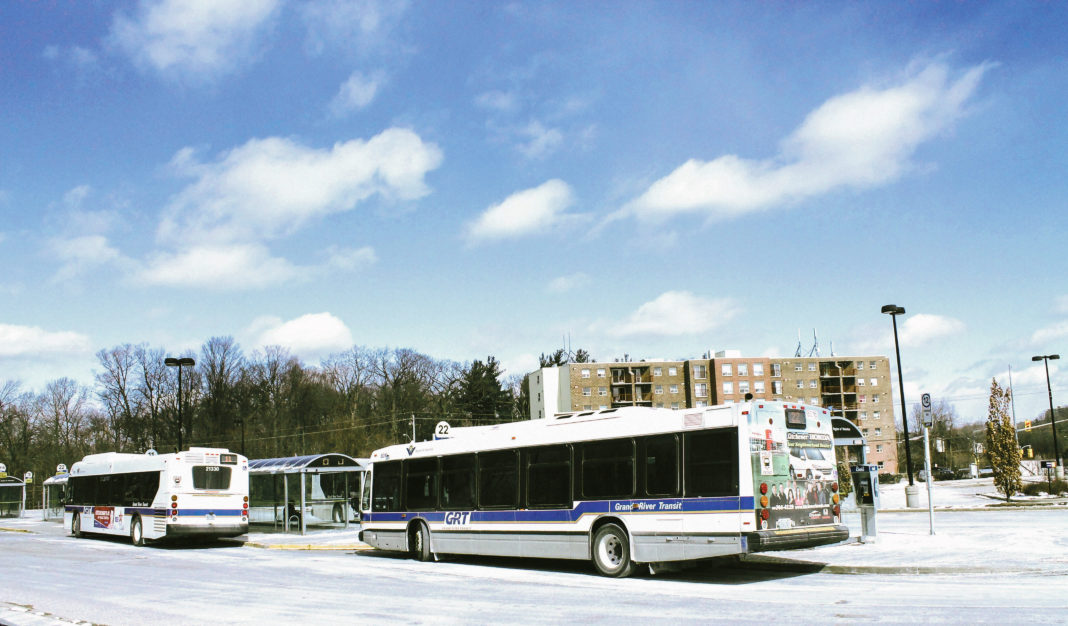Innovation is taking to the streets in public transit with the Grand River Transit (GRT) payment system update.
Originally set for launch in August of 2017, the tri-cities transit provider has been working for months to update their ticket system with EasyGO fare cards.
Now pushed back to a January launch, the re-loadable “tap” technology is intended to replace traditional tickets and coin fare, in an effort to maximize efficiency on behalf of the region’s riders.
In conjunction with these efforts, this year the University of Waterloo rolled out the new WatCard. Boasting chips of their own, not only can the updated identification be used for tap payment, but also as bus fare.
According to VP of Education, Andrew Clubine, the testing phase of the new system was set to begin early November.
“During this time, old versions of the WatCard will continue to be accepted on GRT,” Clubine said in a statement on Nov. 3). “While old WatCards will eventually be phased out, GRT has not yet released a date for the transition period.”
According to Gethyn Beniston, project manager of the electronic fare system with the Region of Waterloo, the driving factor behind the change has not been the bus system but rather, the upcoming ION light rail system, otherwise known as the LRT.
The transition of payment systems however, cannot be fully made until students have updated their WatCards. As student commuting accounts for 30 per cent of GRT ridership, this is a necessary first step for the change.
While Wilfrid Laurier University is a little ahead of the University of Waterloo in terms of transitioning between cards, commented Beniston, the transit provider itself is operating on a timeline approximately between four and six months.
However, nothing is set in stone.
“There’s no fixed timeline so much as things we’re working on in a hurry,” Beniston said.
According to Beniston, the transition to tap technology has been a goal of GRT since the initialization of the Universal bus pass (Upass) program, wherein full-time undergraduate and graduate students pay, as a part of tuition, a non-refundable fee in exchange for unlimited access to GRT services.
“We’re really excited it’s happening,” Beniston said of the change.
Photo by Samantha Phillips






























